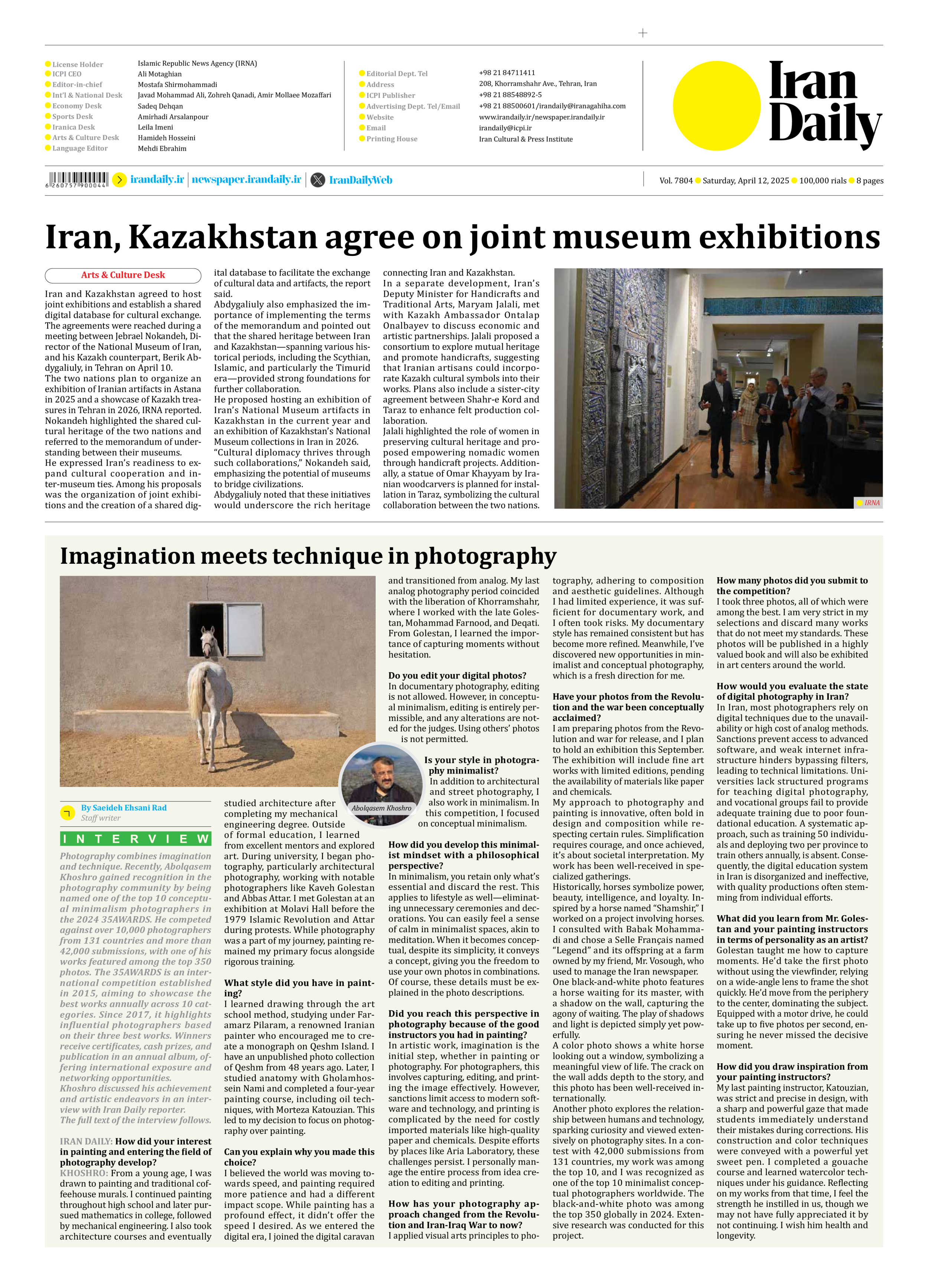
Iran, Kazakhstan agree on joint museum exhibitions
Iran and Kazakhstan agreed to host joint exhibitions and establish a shared digital database for cultural exchange. The agreements were reached during a meeting between Jebrael Nokandeh, Director of the National Museum of Iran, and his Kazakh counterpart, Berik Abdygaliuly, in Tehran on April 10.
The two nations plan to organize an exhibition of Iranian artifacts in Astana in 2025 and a showcase of Kazakh treasures in Tehran in 2026, IRNA reported.
Nokandeh highlighted the shared cultural heritage of the two nations and referred to the memorandum of understanding between their museums.
He expressed Iran’s readiness to expand cultural cooperation and inter-museum ties. Among his proposals was the organization of joint exhibitions and the creation of a shared digital database to facilitate the exchange of cultural data and artifacts, the report said.
Abdygaliuly also emphasized the importance of implementing the terms of the memorandum and pointed out that the shared heritage between Iran and Kazakhstan—spanning various historical periods, including the Scythian, Islamic, and particularly the Timurid era—provided strong foundations for further collaboration.
He proposed hosting an exhibition of Iran’s National Museum artifacts in Kazakhstan in the current year and an exhibition of Kazakhstan’s National Museum collections in Iran in 2026.
“Cultural diplomacy thrives through such collaborations,” Nokandeh said, emphasizing the potential of museums to bridge civilizations.
Abdygaliuly noted that these initiatives would underscore the rich heritage connecting Iran and Kazakhstan.
In a separate development, Iran’s Deputy Minister for Handicrafts and Traditional Arts, Maryam Jalali, met with Kazakh Ambassador Ontalap Onalbayev to discuss economic and artistic partnerships. Jalali proposed a consortium to explore mutual heritage and promote handicrafts, suggesting that Iranian artisans could incorporate Kazakh cultural symbols into their works. Plans also include a sister-city agreement between Shahr-e Kord and Taraz to enhance felt production collaboration.
Jalali highlighted the role of women in preserving cultural heritage and proposed empowering nomadic women through handicraft projects. Additionally, a statue of Omar Khayyam by Iranian woodcarvers is planned for installation in Taraz, symbolizing the cultural collaboration between the two nations.







